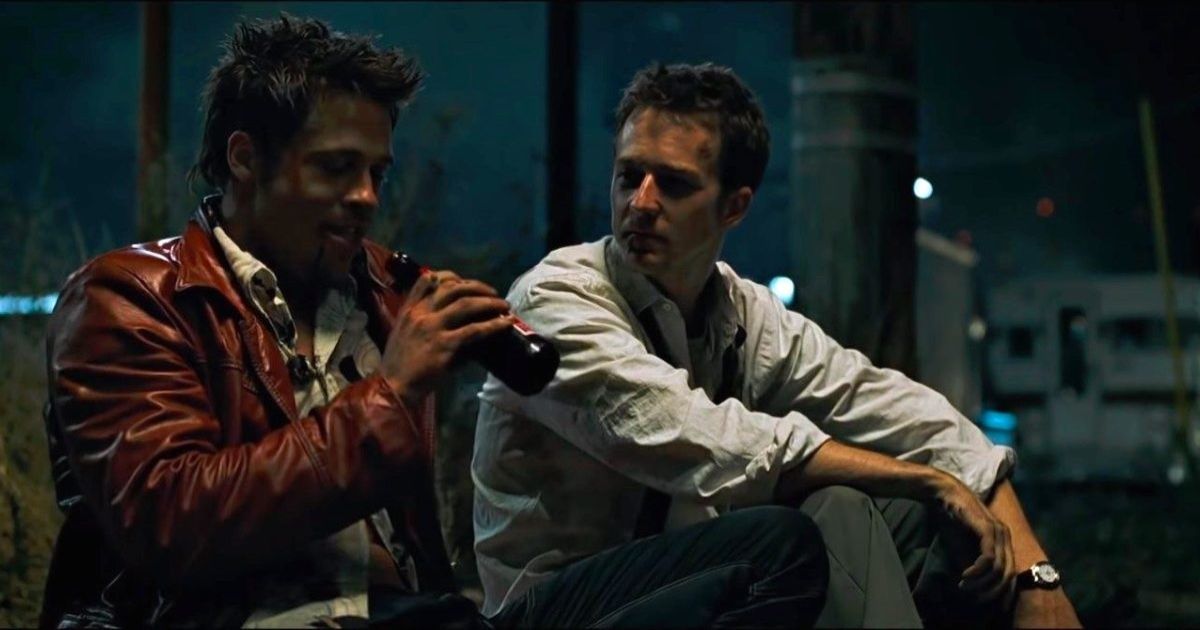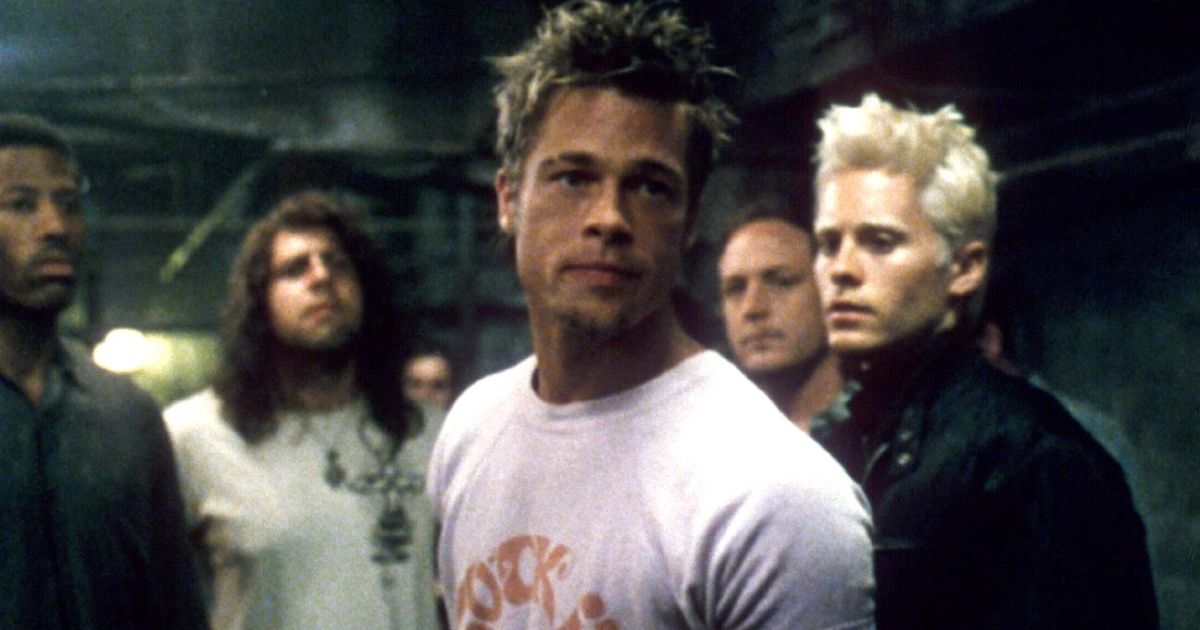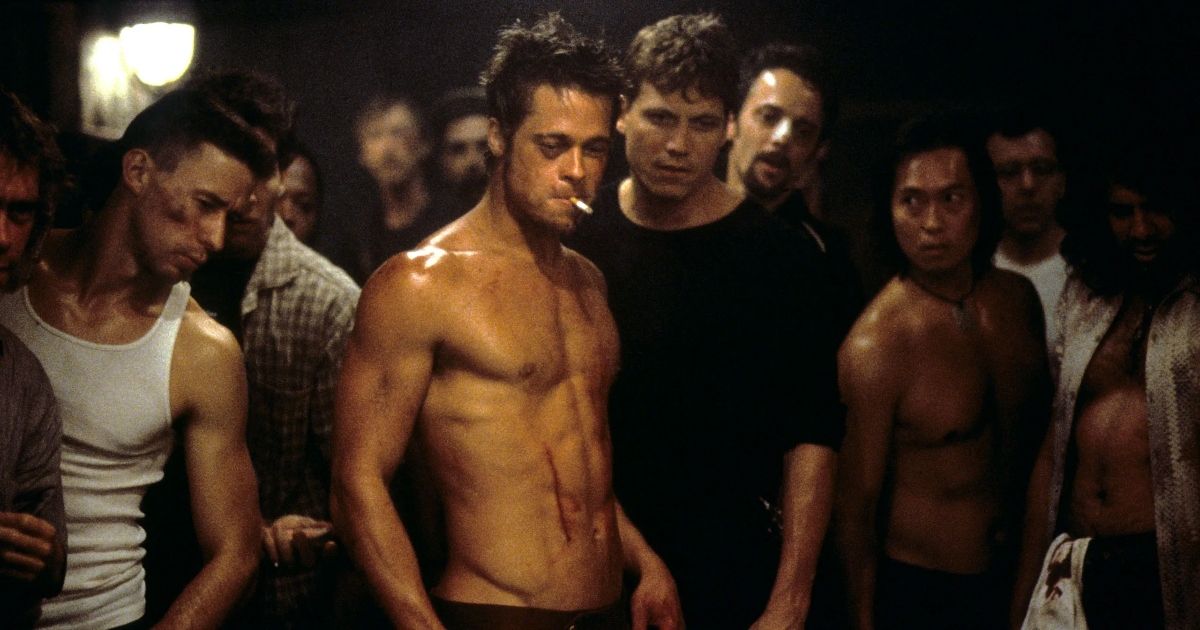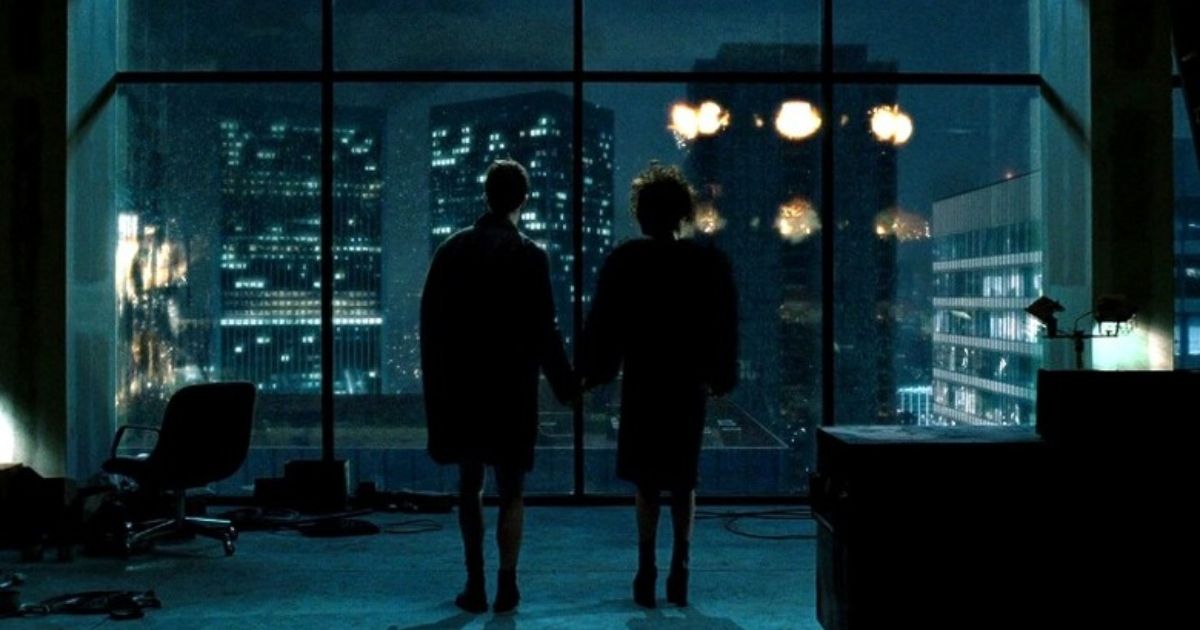There is a general feeling among movie critics and cinephiles that modern cinema has become too watered down and mild in an effort to appeal to the broadest audiences possible and not offend anyone. In the past, Hollywood studios were much more willing to make mainstream movies that risked provoking outrage from the public. One movie that did so in spades was 1999's Fight Club, starring Brad Pitt, Edward Norton, and Helena Bonham Carter.
Helmed with an uncompromising clarity of vision by director David Fincher, Fight Club was a violent, profane, bleakly satirical take on '90s consumer culture and the disenfranchised generation of middle America entering into adulthood at the time. The movie caused a sensation upon release for all the wrong reasons, even getting heavily censored in some places for its incendiary content.
Over time, Fight Club has gathered a passionate global following and is today regarded as a cult classic masterpiece. Twenty-four years later, Fight Club is still making headlines. In fact, as the movie aged, it started to become appealing to a different, more controversial kind of audience. Let's take a look at whether the themes and ideas of Fight Club hold up more than two decades later.
Update November 13, 2023: Following David Fincher's recent remarks about Fight Club, this article has been updated to reflect the movie's ongoing impact on its fans.
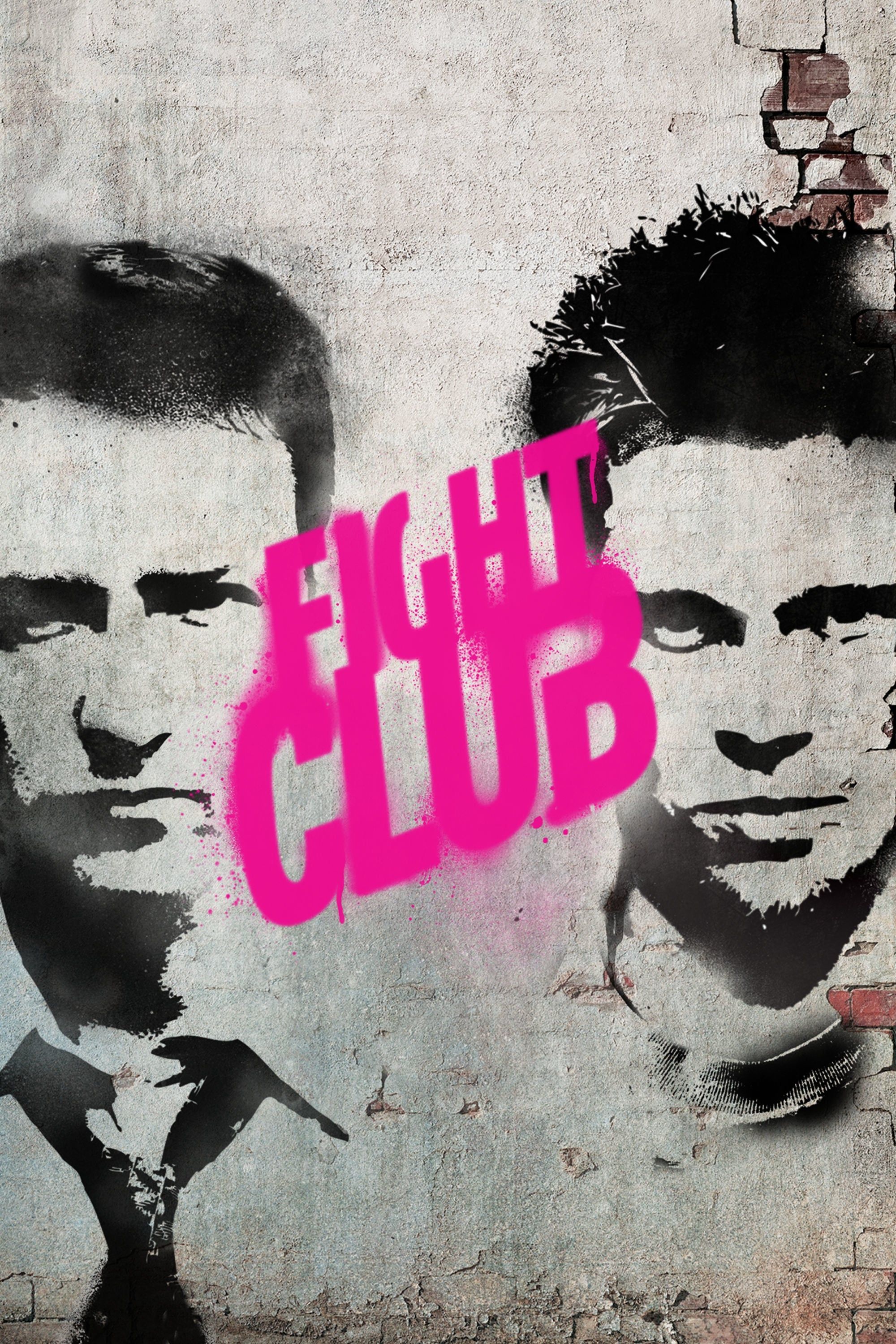
Fight Club
- Release Date
- October 15, 1999
- Director
- David Fincher
- Cast
- Edward Norton , Brad Pitt , Helena Bonham Carter , Meat Loaf , Zach Grenier , Richmond Arquette
- Runtime
- 139
Rage Against the Machine
Fight Club follows an unnamed protagonist (Norton) who works as an automobile recall specialist. Deeply unhappy with his unfulfilling life despite having plenty of money and a nice apartment filled with every modern convenience, the protagonist suffers from insomnia and a general feeling of emptiness in his life. He finally finds a purpose after meeting the intensely charismatic Tyler Durden (Pitt).

Does Barbie Hate Men and Is Ken an Incel?
Somehow, this movie about dolls has triggered a culture war, and some are attacking the Barbie movie as hating men and crying misandry.Together, Tyler and the protagonist start a club where similarly lost, aimless men can beat the stuffing out of each other to feel momentarily alive. Soon the club devolves into something more dangerous, as Tyler secretly plots to destroy multiple buildings using homemade bombs in a misguided misguided revolutionary act to level the playing field between the rich and poor of society.
Is Fight Club Sexist or a Deconstruction of Toxic Masculinity?
Many if not all, the main male characters of Fight Club exhibit traits of toxic masculinity towards each other and the rest of society. The members of the fight club view violence as a way to find meaning and respect in life. They worship Tyler as the alpha male of the pack and are willing to become domestic terrorists after being brainwashed into joining his cause at the expense of their own personal identities.
Tyler himself is a charming but sociopathic leader. He treats the movie's female lead, Marla (Bonham-Carter), with little consideration beyond sleeping with her. Tyler also looks down on others weaker than him with disdain and has no problem with committing whole-scale destruction out of a twisted philosophy that values ideas over people, even his own followers. Unfortunately, many of Tyler's ideas and quotes from the movie and the book it was based on have been co-opted by modern internet groups that celebrate toxic masculinity.
The movie has unwittingly won popularity among "incels" and the far-right wing group who claim the movie's symbolism and themes perfectly align with the core of their values. The movie is about a group of people who have a hard time adapting to their culture, willingly excluding themselves from society and rallying against it. Something about this anarchic attitude represented by the two male protagonists seems to ring true for far-right-wing men incapable of accepting their place in the modern social and economic landscapes and who cannot form healthy connections with the opposite sex.
When asked to give his opinion about this new group of fans in an interview with The Guardian, Director David Fincher distanced himself from it saying that:
“It’s impossible for me to imagine that people don’t understand that Tyler Durden (Brad Pitt) is a negative influence. People who can’t understand that, I don’t know how to respond, and I don’t know how to help them.”
Does Fight Club's Commentary Feel Dated
One major aspect that is difficult to ignore is that Fight Club's criticism of general white-collar boredom might ring a little hollow to modern audiences, particularly those born after the movie was released. For an entire generation, who were raised after September 11th and in a world constantly at war and during multiple economic recessions, the main character complaints about being bored with his well-paying job and being bored with his nicely furnished IKEA apartment while now millions of Americans are struggling to make rent sounds like the definition of entitlement.
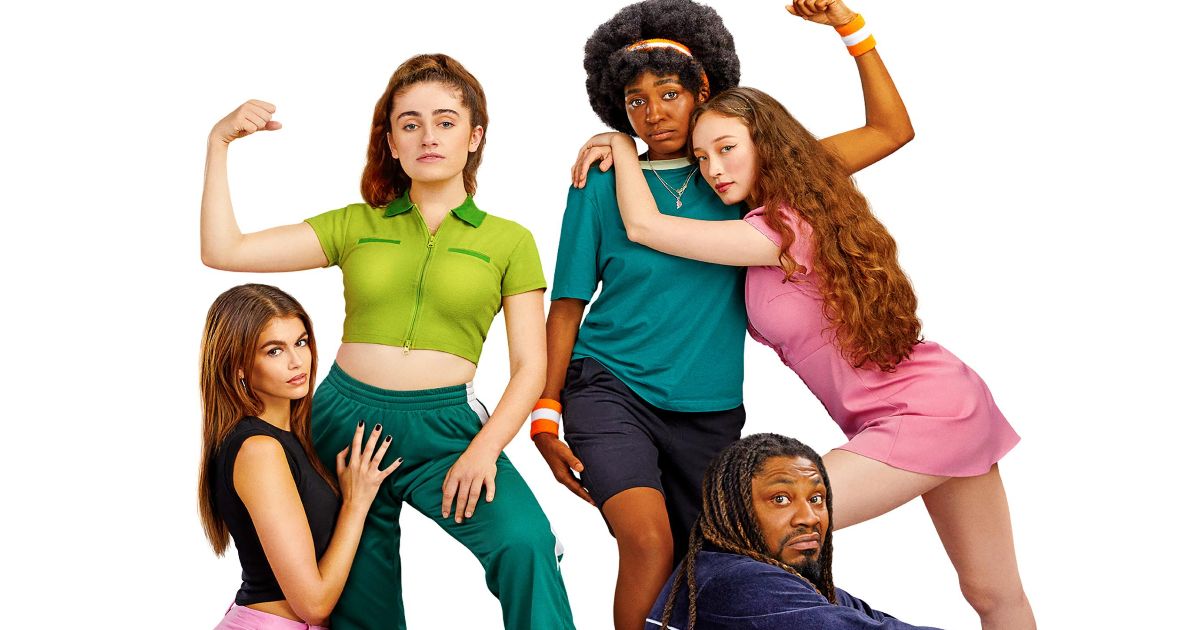
Bottoms Review: Girls Run a Raunchy and Hilarious New Fight Club
Rachel Sennott and Ayo Edebiri dish nonstop one-liners in this riotous LGBTQ+ delight that also parodies modern high school tropes.Fight Club now might have as much importance to modern audiences, at least not in terms of speaking to them. Much like other 1999 films like Office Space and American Beauty, Fight Club captures a particular moment in American history where the biggest concern people had was being to bored with their lives. It is an interesting snapshot into how things change and dates Fight Club but in a positive way.
Fight Club Is Still Culturally Relevant
In the hands of lesser talent, Fight Club could have easily been a schlocky, cheaply provocative gore-fest with nothing important to say. But the world created by David Fincher and ably populated by a talented cast goes much deeper than that. Fight Club contains many shocking and disturbing moments, but they are always in service of a larger point the movie wants to make about the dangers of violence and a self-centered worldview.
Fight Club's message is mocking the same the same type of people who consume it uncritically. The same type of people who idolize Tyler Durden and think he has a point is the type of person the movie is making fun of. Behind the charismatic slick Tyler Durden is a dorky, pathetic, sad man. Fight Club's satire might have gone over some viewer's heads but it was clear the filmmakers were mocking the very thing the movie ended up being criticized for. It's okay to not like Fight Club's message or how it chooses to convey that message, but one can't say the filmmakers were endorsing the message of the movie.
It could be argued, however, that there is no smoke without fire, and that Tyler Durden could in a way, be written as a symbol of justified anarchy in the sense that his feeling of disenfranchisement was caused not just by mental instability and a natural proclivity for violence, but because of external factors like a dysfunctional economic system. Was the movie's message a bit unclear? Was Brad Pitt's performance too convincing, too charismatic that it overshadowed the satirical aspect of the story? Or is it just that, as Fincher claims, "Language evolves. Symbols evolve." and that no one is responsible for how a movie becomes interpreted or what audience it ends up attracting?
Rent Fight Club on Apple TV+ or Prime Video

